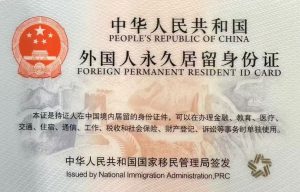What Does Your Original/Dual Nationality Mean for Ur Chinese PR?

Chinese permanent residency, also known as the “five-star card/green card,” is a residency status granted to foreign nationals that allows them to live and work in China long-term, but it does not involve any change in nationality.
Think of it as a “pass” that permits you to live in China for extended periods while still retaining your original nationality, enjoying all the rights and obligations associated with it.

For instance, you must provide a criminal record certificate from both countries where you hold citizenship to prove that you have adhered to the laws during your time in those countries.
Additionally, a “same person” certificate is required to verify that the identity information on the passports from both countries corresponds to the same individual. These materials help ensure the accuracy and integrity of your application, enabling a smoother approval process.
If she acquired another nationality later, she would need to provide relevant naturalization certificates.

Firstly, you need to submit a naturalization withdrawal application, essentially renouncing your Chinese nationality. Once you receive proof of your renunciation from the Chinese authorities, you can then proceed with your permanent residency application.
Although this process may seem complicated, it is a necessary procedure under Chinese nationality law and related regulations, ensuring that your nationality is clear and unambiguous, avoiding any potential conflicts.

The most common types of permanent residency applications include employment-based, spousal reunification, foreign doctoral degree holders, and special talents.
Submit your application: File your application with the local exit and entry administration department, filling out the required forms and providing the necessary documents.
Review and approval: The relevant department will review your materials, and upon approval, you will be granted permanent residency.
Obtain your residency card: Once approved, you need to pick up your permanent residency card from the designated location.
Renewal time: You usually need to apply for renewal a certain period before your permanent residency card expires. The current validity is 10 years.
Updated materials: You will need to provide updated personal information and supporting documents.
Review process: The relevant department will review your renewal application, and if approved, you will receive a new permanent residency card.
We hope this article has helped clarify the relationship between permanent residency and nationality in China. If you have any questions, feel free to leave a comment below, and let’s discuss it further!

